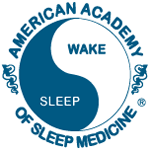 Some people are naturally wired to be tired. About 25 percent of people carry a gene variant that makes them sleepier than their peers, researchers have discovered.
Some people are naturally wired to be tired. About 25 percent of people carry a gene variant that makes them sleepier than their peers, researchers have discovered.The breakthrough explains why you might feel exhausted for staying up a half hour past your normal bedtime while your coworker in the next cubical has no problem regularly burning the candle at both ends.
People with a gene variant called DQB1*0602 are generally more fatigued whether they are rested or not because their sleep is more fragmented, researchers discovered. They spend less time in deep sleep compared to their peers. When they are fully rested, people with the gene variant have less desire to sleep.
The gene variant is closely related to narcolepsy, yet experts say anywhere from 12 to 38 percent of carriers are healthy sleepers who don’t develop the sleep disorder. Some people without the gene variant also develop narcolepsy, although it’s not as common.
The study compared 92 healthy adults without the gene variant to 37 healthy adults with DQB1*0602. Each participant spent a week at a sleep laboratory. For the first two nights they were allowed full rest, with a ten hour scheduled sleep period.
Sleep restriction followed for five nights. Each subject was allowed only four hours in bed and spent the rest of the time reading, playing games or watching movies.
Throughout the study, researchers measured the participants’ sleep quality and tested their memory, attention and ability to stay awake. Each person also reported how sleepy they felt.
When they were allowed full rest, people with the gene variant spent 34 minutes in stage three sleep compared to 43 minutes for people without the trait. After five nights of sleep deprivation people with the variant spent 29 minutes in deep sleep compared to 35 minutes for the control group.
While people with the variant were sleepier and more fatigued, they performed similarly in memory attention and daytime sleep resistance tests.
The findings may lead to changes in the way we look at sleep deprivation. AASM Member and medical director of Minnesota Sleep Disorder Center Dr. Mark Mahowald suggests doing away with sweeping statements about sleep deprivation.
“The implication is that everyone is sleep-deprived and sleep-deprivation does the same thing to everyone, but the tolerance and range of sleep is so different for different people,” Dr. Mahowald told ABC News.
"Our society has equated sleepiness with defects of character, like laziness and depression, but really, some people are generally sleepier during the day. They're more prone to naps, and to sleeping in. We have to accept the fact that sleep duration is genetically determined and not a sign of defect."







No comments:
Post a Comment